EMBRACE Democracy – Reflections from the European Neighbourhood
EMBRACE Democracy – Reflections from the European Neighbourhood is a podcast exploring how democracy is supported, contested, and reimagined across the regions neighbouring the EU. Produced as part of the EMBRACE project, the series brings together researchers and activists from diverse contexts to share personal stories, field-based insights, and lessons on what works in democracy support.
Each episode dives into a different theme: the role of popular uprisings, to working for democracy in wartimes, to the impact of geopolitical rivalries, to the resilience of authoritarian regimes. Guests include both senior and early-career scholars and activists that are part of the EMBRACE consortium, offering both rigorous research findings and personal reflections.
Whether you’re a student curious about politics, a practitioner navigating democracy promotion, or simply interested in how societies struggle and strive for more inclusive futures, EMBRACE Democracy – Reflections from the European Neighbourhood will give you fresh perspectives, grounded in evidence and experience.
Episode 1: Introduction: What works in democracy support, and why?
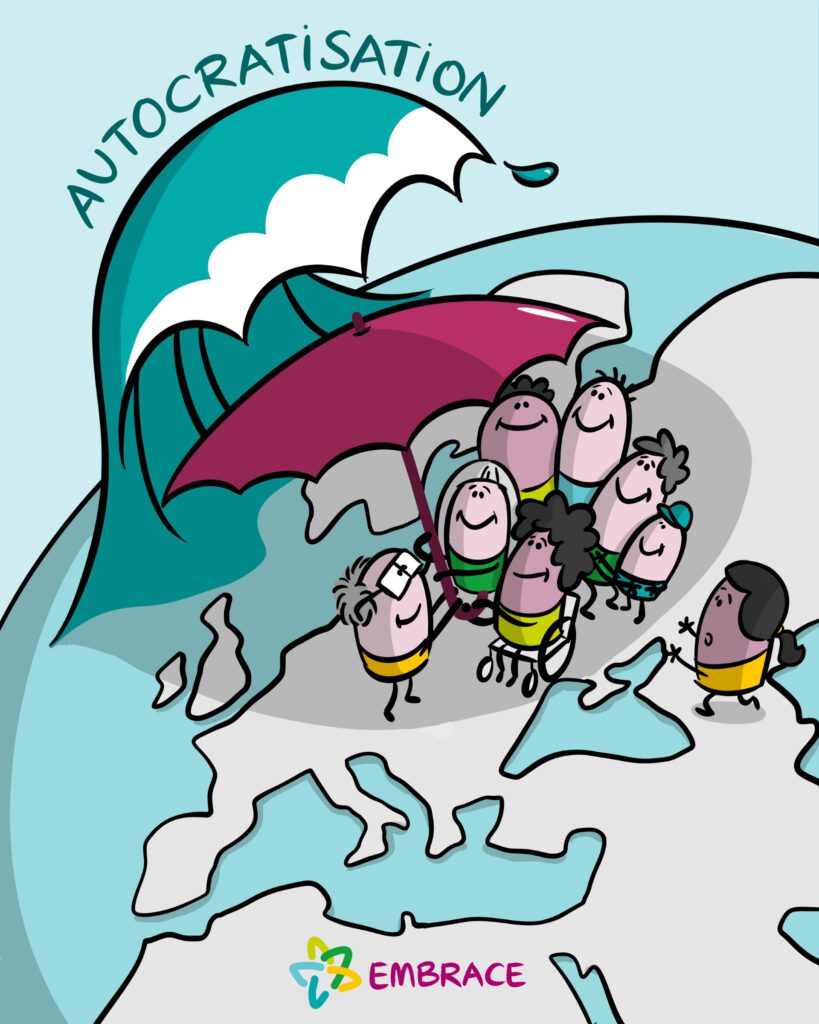
Episode one brings together Prof. Sonja Grimm and Prof. Karina Shyrokykh to explore the European Union’s efforts to promote democracy in neighboring states. The discussion addresses domestic obstacles such as the rise of authoritarian regimes; as well as competing priorities within the EU that shape aid allocation and its effectiveness. The conversation also highlights the importance of research for evidence-based policymaking and encourages citizens to remain engaged and critical. It introduces this podcast series, where specific country cases will be explored on each episode along with recommendations for the EU, featuring researchers and democracy advocates from the EMBRACE Consortium.
Episode 2: Popular uprisings: Reflections from Serbia and Tunisia
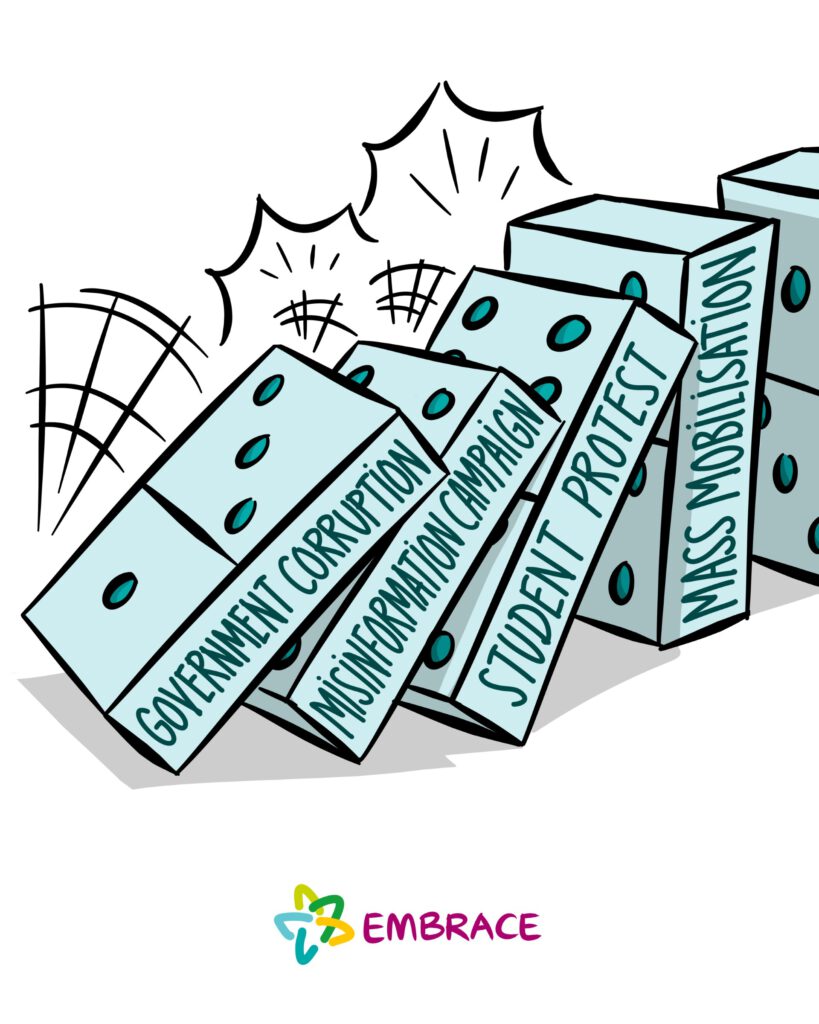
In this episode, researchers and activists Nadia Jmal and Bojan Vranic discuss the current realities in Serbia and Tunisia, such as the recent protests in Serbia, its consequences, and the government’s response. They explore how authoritarian governments use narratives to discredit social movements, and argue that lasting democratic progress needs long-term strategies that address structural causes. Additionally, drawing on examples of democratic gains in Tunisia, they highlight the importance of building coalitions and harnessing collective momentum. The conversation concludes with recommendations for the European Union and listeners, inspired by their experiences as activists and researchers working to strengthen democracy.
Links to the recommendations made in the episode:
Reservoir Bitches byDahlia de la Cerda
“Under Pressure” by Queen and David Bowie
Cyberpsychologie – Leben im Netz: Wie das Internet uns verändert by Catarina Katzer
Episode 3: Gaza and Ukraine: What does it mean to work for democracy in the midst of war?
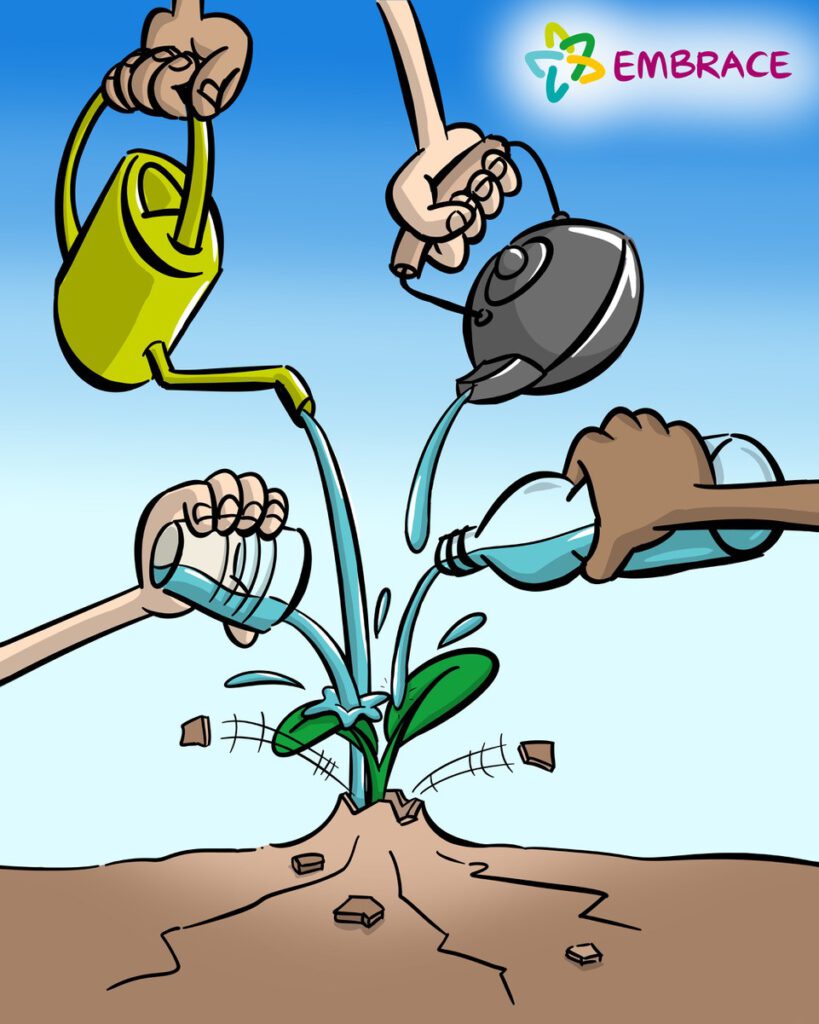
In this episode, Omar Shaban and Tetiana Kyselova, researchers and advocates for peace, reflect on the role of democracy in the midst of war, focusing on the cases of Ukraine and Palestine. They discuss how democracy serves as a form of resistance to oppression, even while facing immense pressure. The conversation highlights the importance of recognising pockets of hope and solidarity, and how war can paradoxically strengthen social cohesion and resilience within communities, even as it makes democratic participation harder to sustain. Finally, they turn to the role of the European Union, examining the expectations people place on it and how its actions influence public trust in the institution.
Links to the recommendations made in the episode:
Getting to Yes by Roger Fisher and William Ury
The Nature of Despotism by Abd al-Rahman al-Kawakibi
Episode 4: Georgia and North Macedonia: When Democracy becomes a Geopolitical Battleground
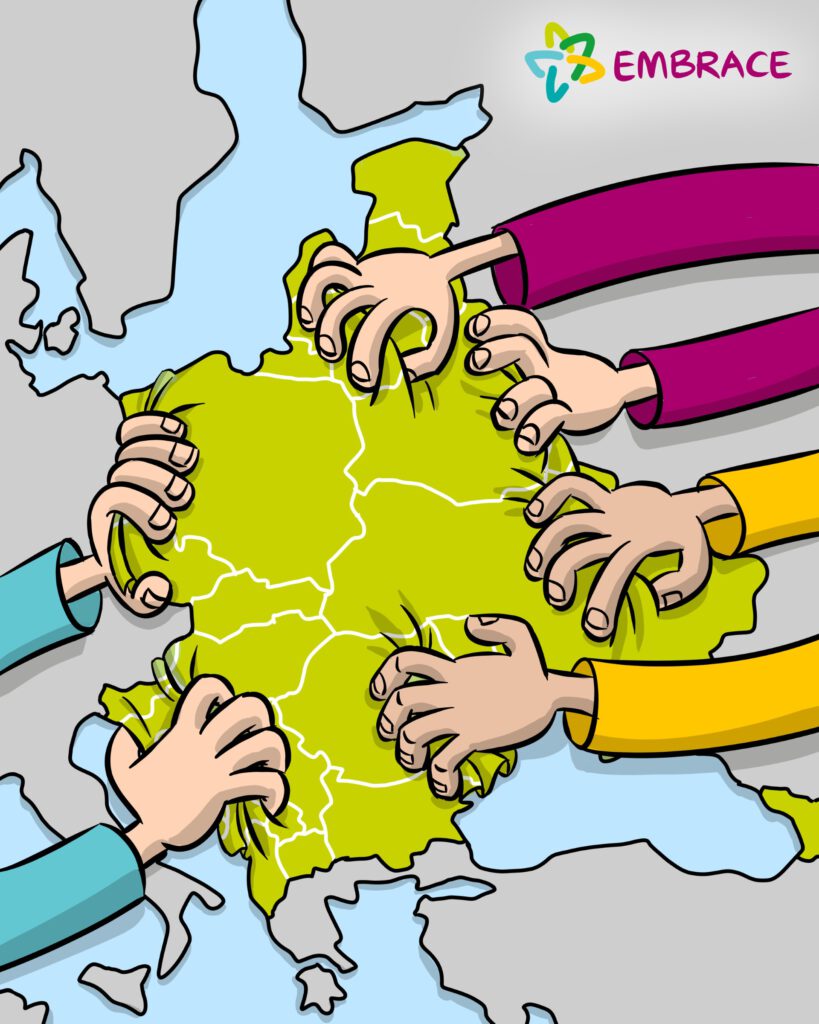
In this episode, Ana Mikautadze and Ana Krstinovska, researchers on Georgia and North Macedonia, discuss the current political and geopolitical dynamics shaping both countries. The conversation covers recent developments such as Georgia’s controversial “foreign agents” law, as well as the broader relationships and influence of global powers like the US, China and Russia in the region. The guests explore how these actors seek to shape public perceptions and maintain strong economic and political ties. They also reflect on the role of the European Union, stressing the importance of making the EU’s actions and initiatives more visible to citizens, and give some further recommendations.
Links to the recommendations made in the episode:
Why Nations Fail by Daron Acemoğlu and James A. Robinson
The Three-Body Problem by Liu Cixin
James Robinson on Why Nations Fail
Episode 5: From Algeria to Belarus: advancing democracy in authoritarian contexts
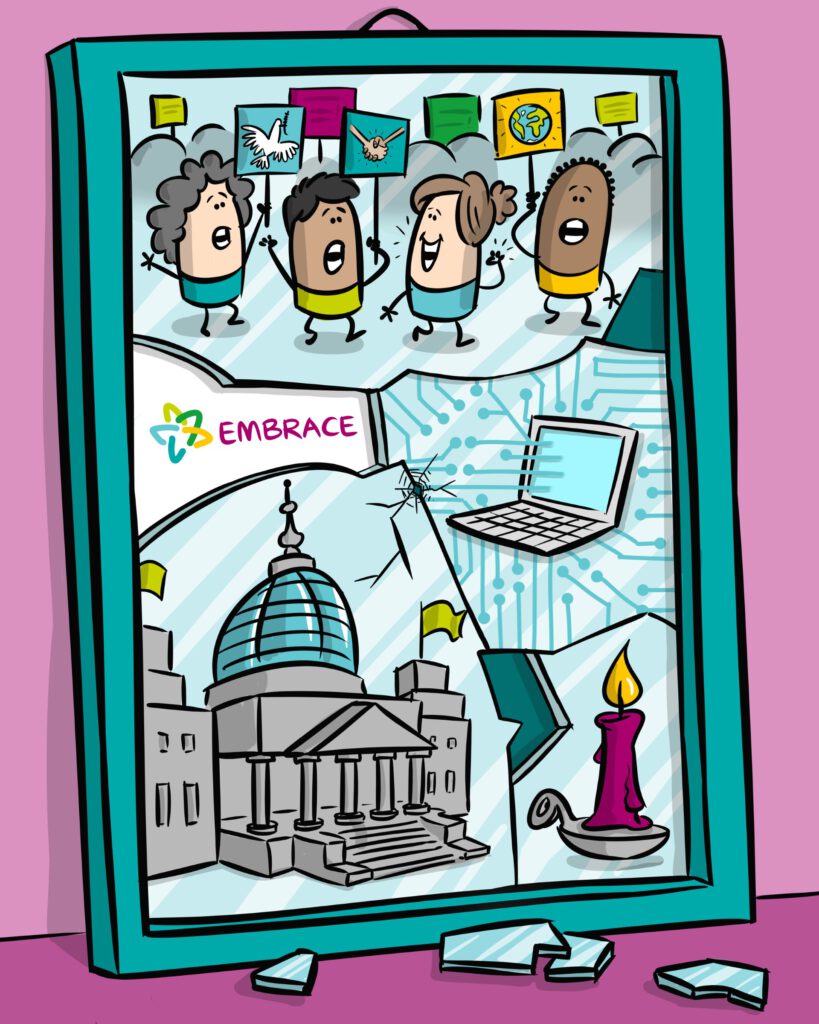
In this episode, researchers Giselle Bosse and Zine Labidine Ghebouli discuss the concept of “blockage elites”—actors who obstruct democratisation through tactics such as media capture and militarized, exclusionary discourses. They explore how protest movements challenge these elites, sharing examples where civic action has achieved success or at least temporary openings for change. The conversation highlights strategies to counter these dynamics, including coalition-building and strategic reframing, as well as the often-overlooked role of people in exile in supporting democratic struggles. The speakers stress that meaningful action must be led by those directly affected, responding to local needs and contexts. They conclude with a message for the European Union: to remain pragmatic in its approach, but without losing sight of its core goal of promoting democracy.
Links to the recommendations made in the episode:
The Origins of Totalitarianism by Hannah Ardent